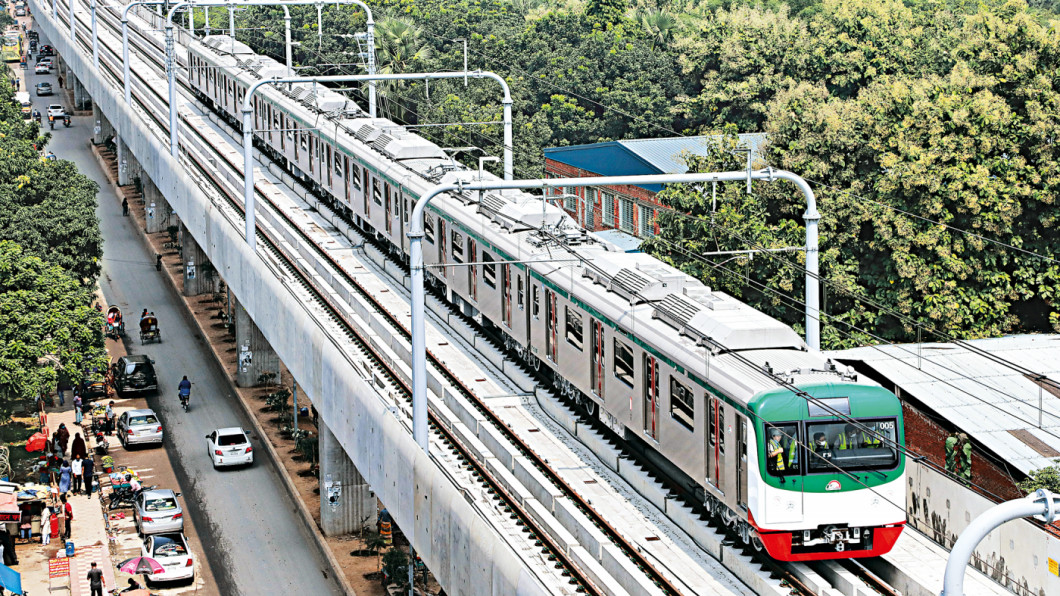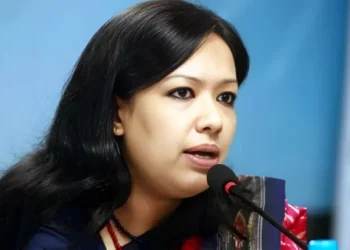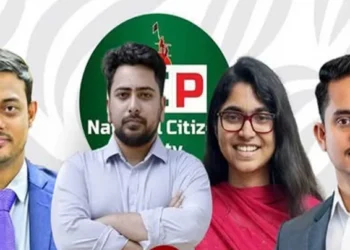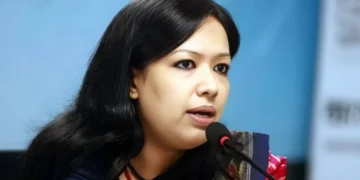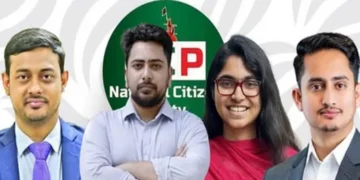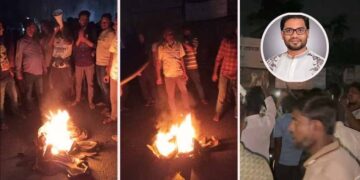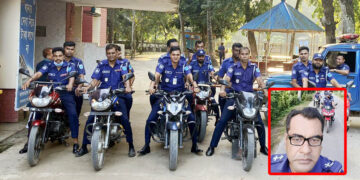A staggering 240,000 metro rail passes have gone missing, causing a severe shortage that continues to inconvenience thousands of commuters in Dhaka. The issue, which traces back to the tenure of the fallen Sheikh Hasina-led government, stems from a mix of poor coordination between two key agencies, a sudden surge in demand, and delays in supplying new passes on time.
Officials admit the situation has left passengers in distress, yet the authorities claim the crisis is easing and relief is on the way.
Types of Metro Rail Passes and Daily Commuter Usage
Dhaka’s metro system offers two kinds of fare payment cards: permanent and single-use. Permanent passes include the Rapid Pass and MRT Pass, while single-use cards are intended for one-time travel. Around 400,000 passengers use these cards daily. Among them, 60% are regular users with permanent cards, while 40% use single-use passes occasionally.
The Rapid Pass is managed by Dhaka Transport Coordination Authority (DTCA), which oversees transportation across Dhaka. In contrast, the Dhaka Mass Transit Company Limited (DMTCL), the metro operator, issues the MRT and single-use passes. While Rapid Passes can be used across various public transport systems, MRT passes are limited to Line-6 of the metro.
How Did So Many Passes Go Missing?
The core of the pass shortage lies with the single-use passes. Back in 2022, during the initial launch of the metro, DMTCL purchased 320,000 single-use cards. Even though long queues for passes were visible during Sheikh Hasina’s regime, the public was never informed that such a massive number of cards had disappeared. Nor were any effective preventative measures visibly taken.
Later, under the interim government, officials abruptly stated that 240,000 cards were taken away by passengers. This unexpected announcement exposed the magnitude of the shortage: the number of available single-use passes plummeted from 300,000 to just 60,000 by November of last year. And yet, nearly 200,000 passengers depend on these passes daily.
The result? Frustrated commuters unable to obtain passes, facing long waits and returning home empty-handed. Recently, DMTCL purchased 120,000 more single-use cards in a second phase, which are now in the process of being activated. Once integrated, the total number of single-use passes will reach 180,000.
No Investigation, No Accountability
Shockingly, DMTCL has not conducted any investigation into the disappearance of these 240,000 passes. Nor has it provided clear answers on what steps were taken to prevent this kind of loss. Observers say that if authorities had enforced a system requiring passengers to return unused passes, or had replaced lost ones gradually, the crisis wouldn’t have escalated to this level.
As single-use passes vanished, the demand for permanent cards surged unexpectedly. With many commuters unable to get one-time passes, they shifted to permanent passes, which now account for 70% of daily use. But these permanent cards aren’t always convenient for all passengers, leading to inconsistent usage and further strain on the system.
The Blame of Officials Pass
When asked if an investigation was conducted into the missing passes, Line-6 Project Director Md. Zakaria of DMTCL responded bluntly that “No, no. Initially, some people bought two cards and kept one. Some bought cards for their whole family but didn’t return all of them.”
He added, “Losing cards or tokens is a concern in metro systems worldwide. We discussed the issue in weekly meetings.” When asked if fewer cards were purchased than reported or whether many were defective, he said that wasn’t possible because the passes come through customs and various checks. “If they were damaged, we would have had them or received replacements. Some from that batch are still available. You can check them.”
But when further questioned about quantities and whether fewer than ordered were actually distributed, DMTCL’s Director of Operations and Maintenance, Nasir Uddin Ahmed, deflected, asking reporters to speak with the Public Relations Officer.
According to available data, DTCA has issued 636,500 Rapid Passes in several phases, while DMTCL has bought 730,000 MRT passes. That brings the total number of permanent passes in circulation to around 1.37 million.
In response to the rising demand and ongoing shortages, DTCA has now planned to procure another 250,000 Rapid Passes. Of those, 90,000 are currently being processed. However, the rest are delayed.
Internal Turf War?
When asked about delays in pass procurement, Zakaria explained that although DMTCL initially purchased over 700,000 passes under the project, they later needed DTCA’s permission to buy more. “We didn’t get that permission, and therefore couldn’t purchase more. Even previous MDs and secretaries formally requested DTCA to transfer the ‘Transport Key’ so we could continue, but DTCA resisted. They didn’t want another agency to manage the pass system.”
Meanwhile, DTCA officials who requested anonymity pointed out that DMTCL is the agency responsible for buying single-use passes. “It’s strange that such a severe shortage happened so suddenly. Even if there was loss, how could hundreds of thousands go missing at once?”
Read More: Bangladesh to Get $1.07 Billion Loan from Japan During Chief Adviser’s Visit
Zakaria insists the situation is improving. “Now there’s no shortage. The suppliers couldn’t deliver the passes on time as per contract. At one point, we bought 15,000 emergency passes for temporary relief.”
DTCA’s Executive Director and DMTCL Board Director Nilima Akhter confirmed:
“Demand rose sharply, but supply didn’t keep up. That caused the crisis. We’ve already received 90,000 new passes, and more are coming. We’ve told vendors not to allow stockpiling.”
Politics, Corruption, and Mismanagement
Back in 2019, under a Public Transport Operator (PTO) agreement funded by JICA, DMTCL was tasked with acquiring Rapid Passes and transferring them to DTCA for fare collection and settlement. However, insiders allege that when DTCA handed over confidential Rapid Pass codes, then-MD of DMTCL, M A N Siddique, with alleged backing from Road Transport Minister Obaidul Quader, secretly launched the MRT pass instead.
Further reports say that although the PTO agreement required selling Rapid Passes through station-based ticketing machines, Siddique banned their sale inside stations. Even when DTCA started distributing them through temporary Dutch-Bangla Bank booths outside stations, Siddique intervened to block them.
Siddique held the post of DMTCL MD for almost eight years under the Awami League government. After the interim government took over, he was removed, and Additional Secretary Abdur Rauf took over as Acting MD. In February, the role was officially handed to globally experienced engineer Faruk Ahmed. Still, Siddique’s influence reportedly remains embedded in DMTCL.
Ground Realities: Frustrated Commuters
A visit to multiple metro stations in recent days revealed the frustration first-hand. Passengers waiting in long queues to buy single-use passes often leave empty-handed and are forced to buy Rapid or MRT passes instead.
Every day, such scenes play out across all 16 metro stations, causing significant delays and public frustration. Some passengers have to stand in line for hours only to walk away with nothing. This constant inconvenience has led many commuters to express their dissatisfaction with what was once hailed as a solution to Dhaka’s notorious traffic.
Additional Red Tape at Stations
On Monday, sources revealed that DTCA’s card sales and recharge agents were no longer being allowed to operate inside stations. Station controllers are demanding written documents authorizing card recharge activity inside the station. Without such documentation, agents are being thrown out.
A DTCA official, speaking anonymously, stated that “To ease passenger services, we placed agents at stations with DMTCL’s consent. Even when there are long lines at DMTCL booths, our agents are being removed. This will negatively impact passenger convenience. We’re now questioning whether DMTCL is removing DTCA’s agents simply because they haven’t received the ‘Transport Key.’”

